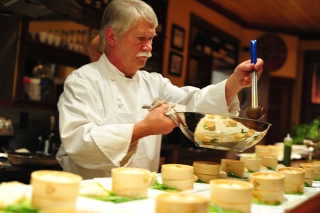
The Importance of Education and Educators
02 January 2025Education is meant to draw forth not necessarily force feed by engaging inquisitiveness.
By Paul Sorgule, MS, AAC
Feedback & comments: This email address is being protected from spambots. You need JavaScript enabled to view it.
We are born inquisitive. Why, how, what, when and where are some of our first thoughts. Each day we learn - sometimes by asking, but mostly from experiences. The idea of going to school when we turn that ripe old age of five (or likely four if preschool is involved) is exciting beyond comprehension. A place dedicated to answering those questions and learning how to be someone unique, to be in the know, is exhilarating.
Learning is powerful and built into our DNA. Human beings are born to learn and then in turn to give back in various ways. Education, in the formal sense, is a platform for this to occur. Formal education is meant to share what we know, what we are growing to know, how to reason, how to digest what we experience and make sense of it, how to differentiate fact from fiction, and most importantly to understand that our capacity is limitless.
Education is meant to show people how to learn and unlock that capacity. It is not meant to tell people to necessarily think like us. Education is meant to provide a forum for engagement and questioning, not to tell people what to question. Education is meant to draw forth not necessarily force feed. There is a difference, sometimes subtle, sometimes not so subtle. It is a fine line that education should be very cautious of crossing. History has shown how powerful education can be and if manipulated by those with a different agenda, how destructive it can be as well. Education can be the gateway to progress or the iron gate to the opposite.
"Education is the most powerful weapon which you can use to change the world."
– Nelson Mandela
Look around at the incredible accomplishments of mankind when the mind is set to think, reason, discover and separate fact from fiction. It is education and the opening of minds that brought about the Hubble and Webb telescopes opening the universe to our inquisitive eyes. It is education that opened our minds to the design of buildings that touch the clouds. Education created a platform of learning that led to the science of genetics, life-saving medical procedures and pharmaceuticals that a generation ago were unheard of. Education allowed free-thinking people to design incredibly powerful computers that fit in the palm of our hands. It is also education that allows us to reflect on society’s mistakes so we can learn and avoid repeating them.
The human mind has so much potential, and education is not only a tool but the air that we breathe, the air that allows that potential to find a challenge to pursue.
"You can teach a student a lesson for a day; but if you can teach him to learn by creating curiosity, he will continue the learning process as long as he lives."
– Clay P. Bedford
Educators are gatekeepers- the guides on the side responsible for feeding curiosity and ensuring we not only train students how to perform tasks and set the stage for learning but invest the time in teaching them how to unlock their natural curiosity. We are important advocates for understanding why as well as how. As culinary educators, we are most effective when we feed curiosity, leading to students understanding what takes place, how the process of cooking impacts a product, and why the result they see occurs. When they understand how to get to why then they can have a much greater impact on the world around them. When students understand the power they have to make change, then education will shine.
"Children must be taught how to think, not what to think."
– Margaret Mead
At a time when formal education is coming under question, when the government is considering the role it will play in supporting a modern educational system, when funding for schools is a point of discussion, and when the once highly regarded college degree is coming under scrutiny, we must look at what we teach, how we teach, why we teach and where we teach so that mankind’s ability to reflect, reason, create and problem solve continues to amaze us all.
"Education costs money, but then so does ignorance."
– Claus Moser
These are critical times that certainly require the ability to change but at the same time stand tall and defend the ultimate importance of formal and informal education and the role teachers and trainers will continue to play.
"The philosophy of the school room in one generation will be the philosophy of government in the next."
– Abraham Lincoln
PLAN BETTER – TRAIN HARDER
Paul Sorgule, MS, AAC, president of Harvest America Ventures, a mobile restaurant incubator based in Saranac Lake, N.Y., is the former vice president of New England Culinary Institute and a former dean at Paul Smith’s College. Contact him atThis email address is being protected from spambots. You need JavaScript enabled to view it..
